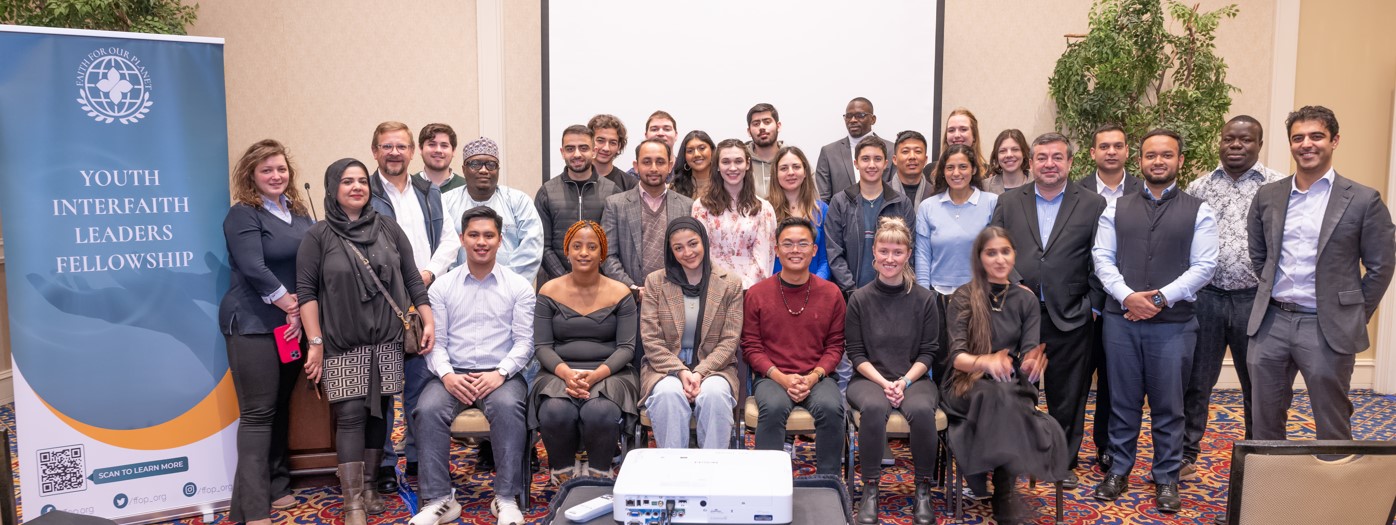Faith For Our Planet (FFOP), a global interfaith coalition launched the world’s first ever global Youth Interfaith Program on climate change at Duke University Divinity School yesterday.
The Fellowship received almost 5,000 applications and 30 youth faith leaders from twenty countries were selected. Participants hailed from several nations including The Gambia, Ghana, Burkina Faso, India, Bangladesh, Columbia, Philippines, Syria, Iraq, Pakistan, Turkmenistan, Australia, New Zealand, The UK, USA, the Netherlands and Kosovo amongst others.
Participants include elected representatives, faith leaders, eco-activists, climate entrepreneurs, sustainability experts, researchers, and policy advocates working closely with governments and civil society globally.
The Fellowship is a fully funded week-long residential program of vocational training, capacity building, and teaching from leading scholars in the field.
The event’s opening ceremony included remarks from the following figures:
Chairman of Faith For Our Planet, Dr Muhammad Abdulkarim Al Issa (Head of the World’s largest Islamic NGO - the Muslim World League)
Dr. Iyad Abumoghli, Founder and Director of the United Nations Environment Program’s Faith for Earth Initiative
Dr. Norman Wirzba, distinguished Professor of Christian Theology at Duke University,
Imam Abdullah Antepli, Associate Professor of the Practice of Interfaith Relations
Dr. Mohamed Elsanousi, Executive Director of the Network of Religious and Traditional Peacemakers
Features of the week-long program include the following:
E-Advocacy Training by the Network for Religious and Traditional Peacemakers.
Championing youth inclusion on environmental decision making by Azmaira Alibhai, Faith & Ecosystems Coordinator for Faith for Earth (UN Environment program).
Incorporating climate narratives in religious sermons by Jershua Neal, Assistant Professor of Homiletics and Dr. Ellen Davis, Professor of Bible and Practical Theology from Duke Divinity School.
Communicating climate realities to skeptics and deniers by Avery Lamb, Co-Executive Director of Creation Justice Ministries.
Sikh Action on Climate Change by Rajwant Singh, Founder and President, EcoSikh and Member Advisory Board, FFOP.
Systems thinking by Nafeez Ahmed, Founding Director, System Shift Lab.
Community trust building & fund-raising training for climate projects by David Dahlin, Founder and Principal, LiveWell and GiveWell and Zareen Qureshi, General Manager, Poverty Eradication Initiative (PEI).
Visits and discussions at Duke Nicholas School of the Environment, Duke Chapel for Sunday Church service, Duke Muslim Center for Friday (Jummah) prayers and Duke Freeman Center for Shabbat.
Dr. Mohammad bin Abdulkarim Al-Issa, Chairman of FFOP said “The climate crisis does not recognize boundaries or borders. Therefore, our response as a global faith community must transcend the parameters of states and sects...This young cohort is the future of not only the climate movement, but of our world.”
“We hope this Fellowship will work together to carry out faith-based climate action initiatives in all corners of the world, indicating the fellowship’s unifying power, crucial at a time of an unprecedented planetary crisis.”
He added “I thank Duke University and Duke Divinity School for this invaluable partnership with FFOP.”
Iyad Abumoghli, Director of the UN Environment Program’s Faith for Earth Initiative said at the opening ceremony “Nature is sacred in all world religions. Islam, Christianity, Hinduism, Buddhism and other world religions see humans as stewards of the planet and its natural resources.”
“I am delighted Faith For Our Planet has similar objectives to the Faith For Earth initiative, focusing on bringing non-traditional communities, such as faith actors, to contribute to global efforts in fighting climate change”
Dr. Mohamed Elsanousi, Executive director of the Network of Religious and Traditional Peacemakers said “I would like to express my appreciation to Faith For Our Planet and Duke University for organising this very critical event.”
Speaking of the connection between climate change and conflict, he added “in the last 60 years, over 40% of the worlds civil wars have been linked to control over natural resources.”
He called on fellows to “bolster efforts to mitigate the effect of climate change through engaging diverse stakeholders, such as policymakers, religious actors and traditional actors and indigenous actors.”
The programme will involve facilitating Fellows to launch faith-based climate action projects to be implement in their home countries.
Future FFOP trainings, project seeding, and a second fellowship already under consideration.
